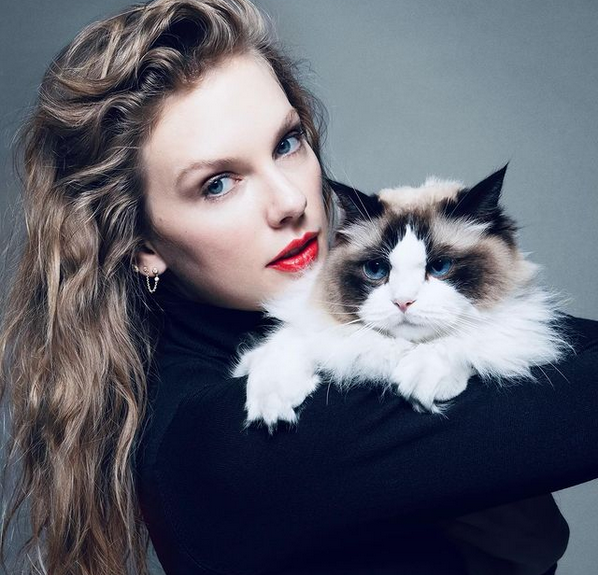Celebrity Endorsements: How Do They Impact the Election?
In the past, elections have been fueled by presidential endorsements of new candidates. Even in the 2024 election, past presidents such as Obama, Clinton, and Carter expressed support for Harris and her campaign. However, in recent years, presidential support has been overshadowed by the glamorous and influential world of celebrity endorsements.
Celebrity endorsements have become a focal point of discussion during the 2024 election, with the support of major celebrities such as Taylor Swift, Charli XCX, Beyonce, and Elon Musk gaining particular prevalence. These signs of support have gained particular recognition in recent years, becoming incredibly influential over celebrity-worshiping generations, and fueling participation and interest in the election.
Previously, Barbara Streisand, a legendary music artist and performer, identified herself as “‘a strong supporter of President Clinton and many of his policies’”. Additionally, other prominent public figures were noted to have personal interactions with historical presidents. Judy Garland was particularly close with president John F. Kennedy, even having “her own house near the Kennedy Compound in Hyannis Port, Massachusetts”. For nearly a century, celebrity involvement in the political atmosphere has been a constant.
One such example is Taylor Swift’s endorsement of Kamala Harris, which gained a great deal of prevalence given both her outstanding fame and historical attempts to endorse election candidates. She also called out “‘dangers of spreading misinformation’”, addressing the false, AI-generated footage of her endorsement of Trump. While it is currently unclear whether or not her endorsement will have any effect on the final result of the election, her call for citizens to vote has certainly been effective. In the 24 hours following her Instagram post, a surge of 406,000 registered/visited vote.gov, and a category of “Swiftie voters” was created.
Other celebrity artists such as Sabrina Carpenter and Green Day led to surges in voting numbers. Carpenter used her sold-out Short ‘N Sweet tour to engage 263,087 voters and register 35,814 new voters. Using their tour, the band Green Day engaged 61,000 voters and registered 7,900.
Additionally, Elon Musk, Tesla’s CEO and the richest man in the world, endorsed Donald Trump on July 13, and has since proceeded to sponsor a “$1 million swing-state voter lottery”. This program has given his endorsement a greater weight; it functions by randomly gifting a voter in a swing state (Georgia, Pennsylvania, Wisconsin, etc) 1 million dollars in exchange for “[signing] the @America petition in support of the Constitutional rights to free speech & bear arms”. A total of 14 individuals participated; however, it was noted that all participants were Republican or Republican-leaning. His system resulted in a lawsuit, with a Philadelphia District Attorney suing him for running what was “indisputably an unlawful lottery”. While Musk’s lottery had a massive effect on American politics, potentially contributing to Trump’s domination over all 7 swing states, the illegally created lottery and fixed selection undeniably crossed a line.
Both candidates have gained other notable endorsements, with Harris receiving support from several notable artists such as Olivia Rodrigo, Beyonce, Charli XCX, Billie Eilish, Taylor Swift, and many others. Trump’s campaign is backed by several public figures, with donations from several billionaires such as Steve Wynn, Kelly Loeffler, George Bishop, and others. Many celebrities involved themselves in the election, with Chappell Roan, who famously refused to endorse a candidate, unwillingly supporting Harris. Artists such as Sabrina Carpenter and Ariana Grande, gained recognition for the massive numbers of voters they convinced to register. While Grande endorsed Harris, Carpenter did not publicly support any candidate. Even Moo-Deng, a baby pygmy hippo and the internet’s sweetheart, cluelessly endorsed Trump.
The critical question is whether celebrity endorsements are truly effective in gaining votes for the supported candidate. As is evident from Swift’s endorsement, celebrity support can often accelerate voting numbers. Other similar instances include a surge in votes motivated by celebrity merchandise, such as Hailey Bieber’s pro-voting shirts, or Michelle Obama’s “vote” necklace. Ashley Spillane, who led a Harvard study on the impact of celebrity endorsements, states that “Voting should be the trendy, cool thing to do”, and that celebrity involvement can support this idea. Spillane accurately describes the main effect of celebrity endorsements; while they are ultimately unable to lead a single candidate to victory (Harris received the support of most major celebrities, but still faced a major loss), they are responsible for registering many voters and bolstering civic engagement.
Especially in younger generations, many people look up to celebrities. Seeing the figures they idolize encouraging voting and endorsing candidates can have a massive effect on people, making celebrity endorsements a critical part of the political system.
While Harris’s numerous endorsements ultimately failed to sway the election result, it is undeniable that they led to a surge in civic involvement and voting registration. From the twentieth century to 2024, celebrity endorsements have been a constant and a fascinating factor in the election.

